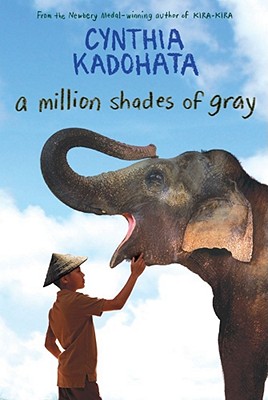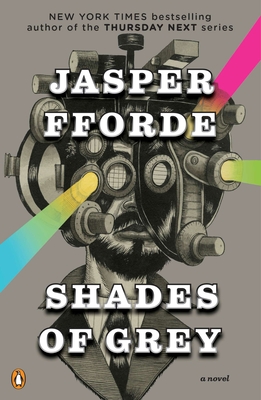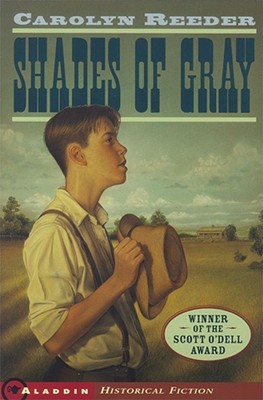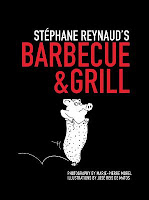Gail Mazur is the
founder of the
Blacksmith House Poetry Series and author of six collections of
poetry, most recently
Figures in a Landscape, published by University of
Chicago Press in 2011. I sat down with her at Zing to talk about her work
and what she’s up to now.
I wanted to ask you
about Blacksmith House. What is your
role as director of the poetry series?
I founded it and now I go to it. When I started the poetry series in 1973 it
was because the owner of the Grolier Bookshop had recently died, and the shop had
closed. It was a shame because everybody, a lot of poets, had converged in
that tiny space, there’d been a sense of sharing poetry and poetry news. Even
though I wasn’t planning on hosting anything myself, I ended up asking the
Cambridge Center for Adult Education if I could have a space for readings. They gave me the Blacksmith
House to use on Monday nights. I
thought, Well, I’ll do it for a few
weeks, until I’m over this. And I did
it for twenty-nine years.
How has running that event
for so long affected you?
I was so young when I started it. I was kind of shy. I had published two or three
poems. I didn’t start the series out of
any ambition for myself, I wasn’t
thinking Oh, I’ll network and meet people
and that’ll be good for me. I just
wanted a place to gather for poetry. That’s probably the reason I could run it
for so long.
On the first night, the room was too small for the number of
people who came. I had two poets, Fanny Howe
and Bill Corbett. I thought Wow, people really want this, I guess I’ll
do one next week. That was how I did
it for the first year or so. I was
planning two weeks in advance, and I advertised by running around putting
posters up on lampposts and trees. It
was amazing.
The economy was different then, too. You could get people to fly up from New York
for almost nothing. Travel was
cheap. I passed the hat to pay the
poets, and I sold books if people had them.
Some of them did, some of them didn’t.
A lot of poets who are well known now gave their first readings at
Blacksmith House because I knew them from the Grolier. The series became—for a long time, I think—the center of poetry in Cambridge. I had
Joseph Brodsky and Seamus Heaney, Eavan Boland, John Weiners, Jorie
Graham, Pinsky, Hass, Frank Bidart—everybody.
Everybody that you could want, that you could dream of, read poetry
there. There wasn’t much else going on.
It was the only poetry reading series outside of the universities, which
always seemed to have this invisible wall around them for many of us. (Though now I always say that Harvard is our
community college and we take advantage of it.)
And you know, I really love poetry readings. I feel as if you can get some idea of how the
poet hears the poem that she or he is writing, which is really helpful for
people who are still uncomfortable reading poems silently to themselves. They don’t take long enough, that’s my theory:
they take fifteen seconds to read something and don’t understand it. But the same poem that takes fifteen seconds to
read to yourself takes place in a different kind of time when read aloud.
We had some great
readings, and there are still great readings there. I’m so grateful for Andrea Cohen, who’s a
wonderful writer and worked as my assistant when she was a senior at Tufts. She has done such a great job with it. She’s marvelous. And Porter Square Books sells the books now.
How do you feel about
performing your own work? Are you ever
nervous doing it?
No, I actually love it.
It’s funny because I’m very nervous when I’m just speaking. If I have to
give a talk, I pray for death. But
somehow with my poems there, it’s different. Blacksmith House made me so comfortable with
being on the stage—you know, that’s probably the great thing it did for
me. It was as if I made a world that I
was comfortable in, that was exciting, that was always interesting. I didn’t make
it interesting, but I made the place.
Was it mostly poets
showing up for a while, or were there random people off the street as well?
There were random
people! And there were so many people over the years who told
me it was their first poetry reading. I
made a mailing list and it was really interesting how geographically widespread
the audience was. You would think that people
would just tumble in from Harvard Square, but that wasn’t so. People came from North Andover, Everett, Lowell,
Plymouth, sometimes from the Cape and the South shore. It was obviously mostly local, but sometimes
if a special guest was reading, people would come down from New Hampshire. At the time, I could also count on the Globe
every Sunday. They had a longer events
list then than they do now.
Do you write in a
notebook, or on a computer?
I write on a lined pad that’s yellow.
Does it have to be
yellow?
No…though I’m used to yellow. Years ago I bought a stack of about
twenty-four of these yellow legal pads from Bob Slate’s while in a panic that I
wasn’t being particularly productive. I’m
down to only a couple now, but I keep refilling my shelf. I also have a journal that I keep on my night
table which I don’t write in regularly, but at maybe two this morning when I couldn’t
sleep—and this is one of the many ways that poems start—a line just came into
my mind with its line break. When that
happens, I know I’m not going to be able to go to sleep until it’s written down,
and usually I keep going. But after the
first draft I go right to the computer.
Does working on the
computer change your process at all?
The lines don’t always have the same relationship once you
type them. The written poem doesn’t look
at all like the typed poem. Also, I’m
old enough to have made the transition from typewriter to computer. Unfortunately on a computer you can lose your
earlier versions, whereas with a typewriter you were like somebody trudging uphill
to work every day: you typed the poem, you realized it’s not right, then you
typed it again. These days that seems
like really hard labor, but it was just what we did. I think the computer makes you a little less
lazy. You fiddle more, and more
easily. I don’t think it’s faster, but
there’s something lively about it that I like.
Every time I think I’m done I print out a draft. Typically I’ll have twenty-four to forty printed
drafts. And that’s rather funny because
the first twenty-three are monuments to what I thought was a finished poem. They’re marked in pencil. I asked my graduate students a couple of
years ago how many of them used a pencil—this was twelve students, not one of them
raised a hand. I use a pencil.
How do teaching and
writing relate for you?
In a conversation I had with some very marvelous, wildly
successful poets, someone asked why we would teach if we didn’t have to. And everyone agreed it was a stay against
depression. Sometimes it’s wonderful not
to teach, but then life can get very formless, particularly if the writing
isn’t going well. And I actually love talking
about poetry, but not everyone out there in the world wants to hear me! My students do want to, because I teach graduate
students. I don’t think teaching does anything
for my poetry except make me that much less isolated. I don’t know what you do if you’re a poet and
you don’t teach. I don’t have any other
hobbies, really.
Do you find yourself
working every day?
No. Maybe in a
perfect world, I could. I share an office building at Radcliffe with fourteen other
writers. We each have an office, and I go
there on the days I don’t teach. Even if
I think I only have an hour, I go there anyway because I know that I’m my most
invigorated self when I’m writing. Life
is better when I’m writing. I mean, I
have friends who say they can tell by looking at me whether I’m writing or
not. It makes me wonder what I look like
when I’m not working on something.
How do you navigate
those periods when you’re not working feverishly on a project, what Maggie
Nelson calls, “soggy, ill-defined, but probably necessary periods between
monsoon and drought”?
There’s a strange thing that happens, and it has a lot to do
with bookstores. This is my bookstore,
along with Harvard Book Store and the Grolier.
When I realize that I’ve hit a wall and I’m not writing, I’m not reading
poetry, I’m reading other things. For
years I used to divide my subjects among the dozen bookstores that I shopped at,
and I still do that to some extent. I
get some of my poetry here and my nonfiction, and I always get my mysteries
here. Sometimes I come in here and I
want to wear a disguise because I’m coming in a few times a week to get a
mystery. But I realize that I’m not the
only writer with a mystery addiction. And
I try to maintain some standard of excellence in the mysteries! But I have to say I do feel my best when I’m
revising, which is really what writing is to me.
Revising
particularly?
Well, yeah, because when you start a poem you’re almost not responsible
in it. (That’s what seems so great about
fiction writing to me. When you get up
in the morning you know what you’re supposed to be working on.) You know, the stand-up comics have a line
when they’re bombing, they say, “I got nothing.” And often I think, Wow. I got nothing.
Three years ago, I had a fellowship and spent the whole year
at Radcliffe writing. I had never had a
writing year like that. And I know there
were two reasons, but one is that I was listening to talks every week by people
in different fields who were supposed to make those talks accessible to each
other. It was probably the first time in
my adult life that I listened to a talk on cosmology or physics. And I think the novel (to me) language of those
different subjects was going in my ear and coming out my keyboard. It was wonderful, but I knew it was an
unusual year. I thought I might go to a lot
of lectures the next year, and I haven’t been to one since. I spend time reading science that I can
understand, and I read a lot of history, but I don’t know what it’s doing to
me. Whereas when I went to those talks,
I’d be writing everything down and hoping I could read it afterwards, and a lot
of it went directly into my poems.
There was a biologist who was doing research on the music of
the creatures on the ocean floor that no one had heard before. Just that phrase itself—“the music of the
ocean floor”—I was completely in love with it.
It’s in Figures in a Landscape. And at the time, there had been a nineteenth
century shipwreck uncovered on the Cape.
The pictures of it were amazing because it was just a skeleton but it
was a whole skeleton—there was a
spine, and ribs. The language in the
newspaper describing this boat was all so new to me. And then suddenly this person was giving a
talk on the music of the ocean floor, and I had the poem. Not all of it, but I went back to my office
after the talk and there was the sound of the shrimp, all that really rich
language.
Do you have any
advice for young poets?
I wasn’t published until I was forty. My first book was published when I was forty
and I think my first poem was published when I was thirty-two. But I wrote my first poem when I was
twenty-eight.
I think reading poetry is the best trigger and the best
impetus for writing poetry. The music of
it gets in your head.
Do you remember a
particular poet or poem that really showed you poetry’s potential?
I was at the Grolier Bookshop—I think I was twenty-seven
or twenty-eight—and a very young poet named James Tate came in. We went for a walk along the river and he
recited, from memory, poems from this manuscript which was about to be his
first book, The Lost Pilot, which was
probably the greatest first book of our generation. He was twenty-three and he was just
wonderful. And I went home and wrote a
poem. It was just one of those
moments. Somebody that I knew and
thought was adorable wanted to share his poems with me; that transformed
me. I had heard Robert Lowell read and
Robert Frost read and T.S. Eliot when I was in high school, and those were
thrilling, but it didn’t seem to have anything to do with me becoming a poet. And for a long time I don’t think I was sure
that I would become anything.
At the time that I had my revelation, my kids were starting
school, too, so for the first time since I’d been a student I had some window
of time to do something. On the other
hand, I know plenty of people who write from six to seven thirty in the morning and then
go to work at nine.
In my experience writers
often return to, and sometimes even obsess over, particular images and ideas. Do you ever feel as if you have exhausted a
subject? How do you keep your work from
becoming repetitive?
Well that’s the sticky part.
I have had times, and I’m in one now, where every poem really came back
to the same thing. But I have to think
in terms of details and approaches, since the poems cannot be the same. I’ve only really been truly repetitive once—it’s
in
Zeppo’s First Wife. I have a
sequence of five poems that all start with the same line, which is, “What is my
purpose in life?” and the whole thing is that every poem tries to figure out
the answer after that. But when I wrote
it, it was because I was thinking,
That’s
not it! That’s not the answer! I’m going to try again. Then I realized I had about eight poems and
three of them were repetitive. And of
course I wanted to just go on for the rest of my life, trying to answer that
question.
I have to try in my revisions to bring everything I can into
the poem while getting as much of myself out of it as I can, because I’m not trying
to tell the world how I feel. I’m trying
to make a poem that I love. I sometimes
go back into the poem and think, What
city is this like, what famous murderer is this like? Is this like Lizzie Borden? Where am I, and what am I looking at, really,
if I’m not looking at myself?
And I think that when you look at the work of a productive
poet or even a not so productive poet (I’ve been teaching Elizabeth Bishop and
Robert Lowell this term) there are recurring images and recurrent language,
which still sometimes surprises me because those poets are so original. There are just givens in a life. We all have our particular kind of music, which
we push against and change. Me, I have a
horror of being mournful.
On the other hand, I really believe that you should write it
out, whatever it is. And that’s why I
say that revision is most of the work, and it’s most of the inventive
work. Sometimes you write something and
then you see it later and wonder how you could have written it. Revision is really interesting and the first
draft is sometimes just luck.
Do you save the first
drafts? Now that you’re working on a
computer, do you have them, or do they normally disappear?
You know, I do save them but I never save them in a
systematic way. So when I’m asked for my
papers, I sometimes say I don’t have any.
I’m sloppy and I don’t have an archival mentality. But when I save them, I save them for a long
time. And sometimes I save them for
teaching. I like to teach revision
because very often I find that my students begin with a sort of helpless
attitude towards it. There are some
wonderful drafts in library collections that I have Xeroxes of. There are seventeen drafts of Elizabeth
Bishop’s famous poem “One Art.” I love to bring it in to the students and
say, “See what a mess the first draft is?
See where she started to think this might be a villanelle, and she just
wrote ‘ABA’ at the end of the page? And
look, how did she have this horrible third line for so long, and it wasn’t
until the sixteenth draft that she got rid of it?”
My own revisions, I have to say, are less interesting to
look at now that I work on a computer. Even
though I make little notes on them, it’s not like making extensive notes on the
typed drafts before dragging yourself back to the typewriter to retype the
whole thing. But still, I find it
fascinating to see another poet’s drafts.
It’s good to see that someone doesn’t just do a first draft and think it’s
no good and give up. It’s our work. And sometimes it’s torture but it’s
interesting… especially when you’re not stuck, which isn’t all the time.
You’ve now been in
Cambridge and Provincetown for…
I’ve been in Cambridge for decades, and it has changed so
much since I first came here. It seemed
like there were twenty bookstores in Harvard Square and maybe seven independent
coffee shops. And there was rent
control. There was a rent-controlled building
that always had six or eight poets in it, because the super was a fiction writer,
and he put poets high on the waiting list.
It was a dream neighborhood. But
there is still a great community here, and I can’t imagine what I would do
without it, now that I’ve lived with it.
In fact, this bookstore is a miracle to me. Bookselling was already a really tough
business when Porter Square Books opened up, but it happened at just the right
time for those of us who were watching all the bookstores close. Not to slight Harvard Bookstore, they are
absolutely wonderful, but this is my neighborhood—I live about two blocks
away. That’s why I can run over here at eight o’clock at night and get the new Donna Leon mystery.
Do you think a writer
can live anywhere? How does your
community influence your work?
Some people can write anywhere. I’m so fussy that I can’t even write in my
house. I have to make myself go elsewhere
to really get any work done. But I think
that there are poets all over the country, particularly who have taken teaching
jobs in places where there are no other poets, who are just as productive as
people are here.
I’ve always felt that an artist is something of an outsider
in the world, and it’s a great comfort to have times that you don’t feel like
one. If I walked towards anyone in my
family with a typed poem, they would
look panicked. That first night at the
Blacksmith House was one of those turning points in my life when I realized
that everybody, all those people, really wanted to see each other’s work. And that was really great.
Do you find that sort
of community in your current work space?
When I had the fellowship, the college provided computers
and a printer in the hall. I actually brought
my own printer and convinced the IT people to connect it, since I didn’t want
my drafts out in the hall for everyone to see.
But it wasn’t done quite right, and my drafts were going out into the
hall anyway. One day, an historian who
worked in the building said to me, “I saw a wonderful poem of yours out on the
printer.” Of course I was appalled, and
at the same time I thought: an historian, who never would have read anything of
mine, who wouldn’t have seen a magazine that it was in… this person likes my poem!
But for the most part, no. For me
it’s about going to an enclosed space where I can’t fritter my time away with
anything else. So if I’m not writing,
I’m reading poems. There are certain
poets that really do get me writing, and they change.
Who are you reading
right now?
The poet that has been very reliable for me lately has been
Milosz. Those poems are in translation,
and the translations are mostly by Robert Hass and Robert Pinsky. There’s something about the expansiveness of
his position as a speaker that is very freeing to me; I think that when you’re
reading poems because you want to be writing them, you need something like
that. You need something frozen to be
broken up.
Pinsky is also a real inspiration to me. His work is a reminder that everything you
know, everything you’re curious about, can fit into a poem if you put it in the
right place. That if you start thinking
about a subject and push as far as you can, it will take you somewhere else. I wrote my first ode this year, to the
Charles River, but it was really an ode to everywhere. I know that Robert’s work was behind that in
a way. I could have Leif Erikson and a
Jewish grandfather on the Day of Atonement and the growths along the riverbank
and the governor who ordered the river to be cleaned all together in one poem.
If you think of an
image as a jumping-off point, you can do so much. The poem isn’t hermetic, it’s reaching out. T
he first poem in Figures in a Landscape, about the hermit crab, isn’t really about a
hermit crab. It has marine information,
tarot, and Aristotle, but it’s really about loneliness. Hermit crabs are a little horrifying,
really. Often they’re not alone in the
shells they borrow, they don’t have their own, and sometimes when they outgrow
their shell they bring its previous owner with them. That’s pretty complicated
,
isn’t it? You don’t have to write the
connection between them and us. It’s all
there.
One of the things that is so wonderful about Elizabeth
Bishop’s poem “Crusoe in England” is that she has Crusoe quoting Wordsworth,
but Robinson Crusoe was written
before Wordsworth. You don’t have to
worry about chronology or anachronisms in poetry, you can do whatever you
want. It’s your poem.
Kim Prosise
























